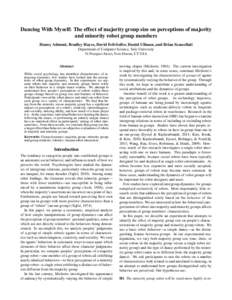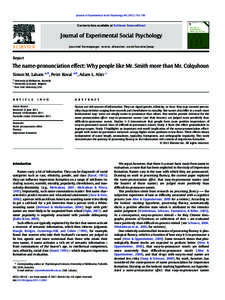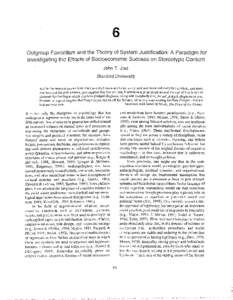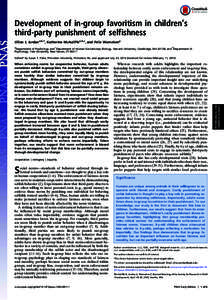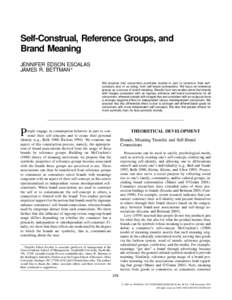<--- Back to Details
| First Page | Document Content | |
|---|---|---|
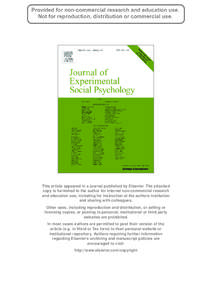 Date: 2011-11-30 11:30:36Behavior Ingroups and outgroups Prejudice In-group–out-group bias Mimicry Group dynamics Stereotype Out-group homogeneity Self-Expansion Model Group processes Social psychology Sociology |
Add to Reading List |
 This article appeared in a journal published by Elsevier. The attached copy is furnished to the author for internal non-commercial research and education use, including for instruction at the authors institution and shar
This article appeared in a journal published by Elsevier. The attached copy is furnished to the author for internal non-commercial research and education use, including for instruction at the authors institution and shar